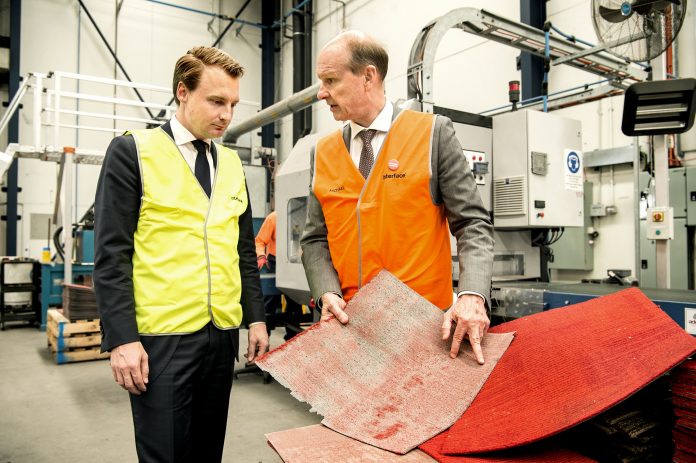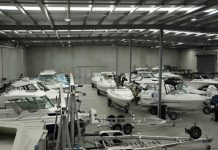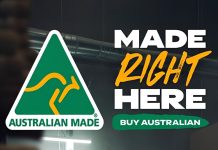
Media Release
Global flooring company Interface® this week welcomed James Griffin MP, NSW Parliamentary Secretary for the Environment, to celebrate after announcing in early November it had achieved its own ambitious sustainability goals of ‘Mission Zero®’ – a moonshot goal set 25 years ago to eliminate any negative impact on the environment – ahead of an end of 2020 target.
Interface’s achievements across all key environmental metrics internally and throughout its supply chain are substantial. Every flooring product – carpet tile, LVT and nora rubber – the company sells is carbon neutral across its full lifecycle because the company has reduced its carbon footprint through efforts in redesigning and prioritising the use of recycled and biobased materials in its products, using renewable energy sources and offsetting the remaining emissions.
Managing Director of Interface Australia and New Zealand Michael Gabadou said that while Interface is proud of the ambitious sustainability goals it has set and met, “one of our biggest challenges locally, remains the availability of renewable gas, as we have been using 100% renewable electricity since 2011”
“Gas makes up 60% of our energy needs at our factory at Minto, in Sydney’s South West, so it’s a vital part of our emissions reduction equation. Yet the supply of renewable gas is all but non-existent in Australia. Renewable gas is not only important for sustainability-driven manufacturers like Interface. Biomethane gas will allow other industries to decarbonise and meet the energy challenges in reliability, dispatchability and emissions,” said Mr Gabadou.
Interface’s achievement was marked with a visit from James Griffin MP, NSW Parliamentary Secretary for the Environment, to Interface’s Minto factory in Sydney’s South.
“We are delighted to host James Griffin, NSW Parliamentary Secretary of the Environment. We shared with him our journey to Mission Zero. We also shared our urgent need for green gas.
“We look forward to working with other gas users, existing gas suppliers and distributers, the NSW and Federal Governments and agencies like Australian Renewable Energy Agency (ARENA) to help get renewable gas projects up and running. Biomethane has enormous potential, with significant quantities of organic waste available as a feedstock,” said Mr Gabadou.
During the visit to Interface’s factory, Mr Griffin commented that “Interface has demonstrated what is possible, what business can achieve if it sets its mind to even the most ambitious sustainability targets. Importantly, it has demonstrated that sustainability and profitability are not mutually exclusive. You can be a healthy, profitable business and produce a carbon neutral product. Interface’s is an exciting story, one other businesses can learn from,” said Mr Griffin.
Interface also shared with Mr Griffin its next audacious milestone, ‘Climate Take Back®’, which embraces carbon as a resource. It is their commitment to running its business in a way that is restorative to the planet, creating a climate fit for life and aims to make Interface a carbon negative company by 2040.
Mr Gabadou said, “as climate optimists, we believe in the power of innovation and influence that people have. Collectively, with these lessons, we’re set to achieve our next bold mission of leading a movement to reverse global warming – Climate Take Back®.
“Innovations like our ReEntryTM – carpet recycling facility in Australia – have been key to achieving our sustainability targets in the ANZ region. This solution provides a circular economy model where value is maintained across its whole product life cycle is our commitment to manufacturing in Australia and benefiting the environment. And we look forward to making more positive impacts through our continued designs and innovations.”
The Key Mission Zero Targets
Interface created aggressive sustainability targets after their founder Ray Anderson’s famous “spear in the chest moment” in 1994. Their Mission Zero goal focused on reducing impact in three key areas of the business: its factories, products and suppliers. Since then, Interface has greatly reduced its footprint in nearly every capacity, including:
• 69% reduction in carbon footprint of Interface carpet tile products
• 96% reduction in Greenhouse Gas emissions globally
• 89% renewable energy use across its factories globally, with 100% renewable electricity
• 46% reduction in energy use per unit of production to make products globally
• 89% water use reduction per unit of production in factories globally
• 92% reduction of waste to landfill across global business
Image Provided




















